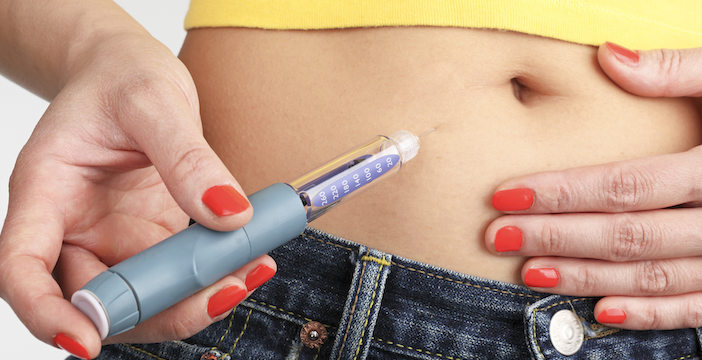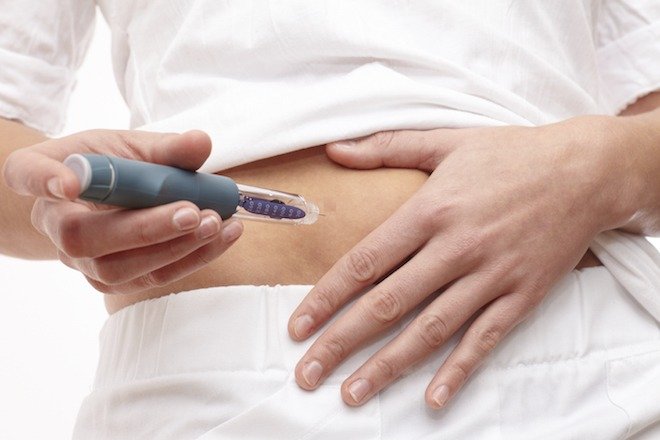
When a healthcare practitioner recommends that a patient with diabetes should add insulin to their oral medications, the response is often one of dismay. Such patients often feel that the move to insulin means they have in some way failed in their diabetes self-management.
This is usually not the case at all. The fact is that people are diagnosed with type 2 diabetes because their bodies lose their ability to use their own insulin, and in time, the pancreas may make less and less insulin. In the beginning, a healthy lifestyle program in conjunction with oral medications may be able to keep blood glucose levels within targets. However, for some people, insulin may be prescribed right at the time of diagnosis, with or without oral medications.
When oral medications are prescribed at the start, they need to work with the body’s own insulin to be effective. For many people with type 2 diabetes, eventually the body’s own insulin supply drops to a point where oral medications can’t do their job. Insulin injections must then be added to keep blood glucose levels within targets. So the bottom line is that your body needs insulin, whether you make your own or get it from an injection.
It is no one’s fault but is simply one of the ways in which type 2 diabetes may progress.
An array of emotions
The idea that needing insulin equates to failure likely stems from several factors. First, there is a stigma associated with insulin use, often perceived as a last resort. This can be compounded by a lack of understanding about the natural progression of type 2 diabetes. Many people with diabetes and even some healthcare providers may not fully appreciate that insulin therapy is a normal and expected part of managing the condition over time.
Why me? This must be serious
Recognize that you may have a very negative reaction to the news. There may be feelings that it isn’t fair after trying so hard to follow the recommended management plan – you’ve been eating healthier, exercising more, and taking your oral medication, so why did this happen? There may be fear that moving to insulin will mean the situation is serious.
Some people fear that insulin injections will be painful
Today’s insulin injection needles are very small and inject into parts of the body that aren’t highly sensitive to pain. Many people who take insulin say that it is less painful than blood glucose monitoring using a fingerprick, which you are likely already doing.
There are benefits to early insulin use
Be reassured that insulin is just another tool in the diabetes management tool-box. Research shows that early initiation of insulin therapy can have significant benefits. Early insulin use can help achieve better blood glucose control, reduce the risk of complications, and even preserve some pancreatic function for a longer period. By maintaining tighter glucose control, patients can improve their overall quality of life and reduce the burden of diabetes-related health issues.
Insulin is a natural hormone so it is very safe. It can be extremely effective at managing blood glucose levels, and you are likely to feel better within a very short period as your blood glucose levels get to their target levels.
Empowerment through knowledge
Empowering yourself with knowledge about your condition and treatment options is crucial. Understanding that insulin is a vital tool in the management of type 2 diabetes can help shift the perception from one of failure to one of empowerment. Insulin therapy should be viewed as a means to achieve better health and prevent complications.
If you have concerns or questions about a move to insulin, talk to your doctor, pharmacist or the diabetes educator on the diabetes healthcare team. They will be happy to provide the information you need.
You may want to check out our video, Insulin: Nothing to Fear.
And don’t forget to reach out to others – they may understand your anxieties and be able to reassure you.



